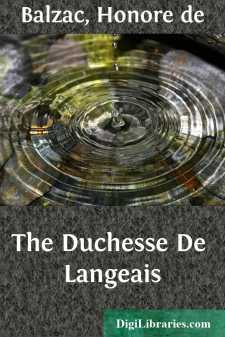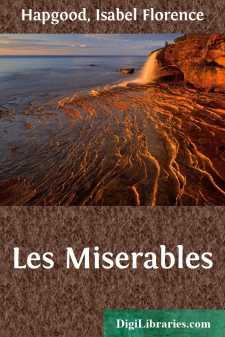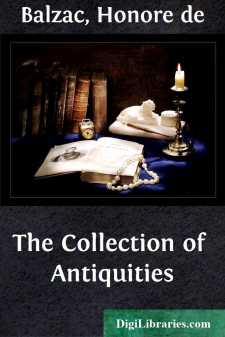Literary Collections
- American 84
- Ancient, Classical & Medieval 14
- Asian 1
- Australian & Oceanian 1
- Canadian 55
- Continental European
- English, Irish, Scottish, Welsh 179
- Essays 160
- General 24
- Letters 46
- Middle Eastern 1
Continental European Books
Sort by:
by:
Honore de Balzac
THE DUCHESSE OF LANGEAIS In a Spanish city on an island in the Mediterranean, there stands a convent of the Order of Barefoot Carmelites, where the rule instituted by St. Theresa is still preserved with all the first rigor of the reformation brought about by that illustrious woman. Extraordinary as this may seem, it is none the less true. Almost every religious house in the Peninsula, or in Europe for...
more...
by:
Honore de Balzac
I. AN AMBUSCADE Early in the year VIII., at the beginning of Vendemiaire, or, to conform to our own calendar, towards the close of September, 1799, a hundred or so of peasants and a large number of citizens, who had left Fougeres in the morning on their way to Mayenne, were going up the little mountain of La Pelerine, half-way between Fougeres and Ernee, a small town where travellers along that road...
more...
by:
Honore de Balzac
THE DESERTED WOMAN In the early spring of 1822, the Paris doctors sent to Lower Normandy a young man just recovering from an inflammatory complaint, brought on by overstudy, or perhaps by excess of some other kind. His convalescence demanded complete rest, a light diet, bracing air, and freedom from excitement of every kind, and the fat lands of Bessin seemed to offer all these conditions of recovery....
more...
The most robust and masculine of recent French novelists is a typical Norman, sprung from an ancient noble family, originally of Lorraine, but long settled in the Pays de Caux. The traveler from England towards Paris, soon after leaving Dieppe, sees on his left hand, immediately beyond the station of St. Aubin, a handsome sixteenth-century house, the Château de Miromesnil, on a hill above the railway....
more...
by:
Jeremiah Curtin
Introduction Eliza Orzeszko, the authoress of "The Argonauts," is the greatest female writer and thinker in the Slav world at present. There are keen and good critics, just judges of thought and style, who pronounce her the first literary artist among the women of Europe. These critics are not Western Europeans, for Western Europe has no means yet of appreciating this gifted woman. No doubt it...
more...
by:
Honore de Balzac
CHAPTER I. SERAPHITUS As the eye glances over a map of the coasts of Norway, can the imagination fail to marvel at their fantastic indentations and serrated edges, like a granite lace, against which the surges of the North Sea roar incessantly? Who has not dreamed of the majestic sights to be seen on those beachless shores, of that multitude of creeks and inlets and little bays, no two of them alike,...
more...
by:
Honore de Balzac
LOUIS LAMBERT Louis Lambert was born at Montoire, a little town in the Vendomois, where his father owned a tannery of no great magnitude, and intended that his son should succeed him; but his precocious bent for study modified the paternal decision. For, indeed, the tanner and his wife adored Louis, their only child, and never contradicted him in anything. At the age of five Louis had begun by reading...
more...
CHAPTER I—M. MYRIEL In 1815, M. Charles-Francois-Bienvenu Myriel was Bishop of D—— He was an old man of about seventy-five years of age; he had occupied the see of D—— since 1806. Although this detail has no connection whatever with the real substance of what we are about to relate, it will not be superfluous, if merely for the sake of exactness in all points, to mention here the various...
more...
by:
Honore de Balzac
MASSIMILLA DONI As all who are learned in such matters know, the Venetian aristocracy is the first in Europe. Its Libro d'Oro dates from before the Crusades, from a time when Venice, a survivor of Imperial and Christian Rome which had flung itself into the waters to escape the Barbarians, was already powerful and illustrious, and the head of the political and commercial world. With a few rare...
more...
by:
Honore de Balzac
THE COLLECTION OF ANTIQUITIES There stands a house at a corner of a street, in the middle of a town, in one of the least important prefectures in France, but the name of the street and the name of the town must be suppressed here. Every one will appreciate the motives of this sage reticence demanded by convention; for if a writer takes upon himself the office of annalist of his own time, he is bound to...
more...











